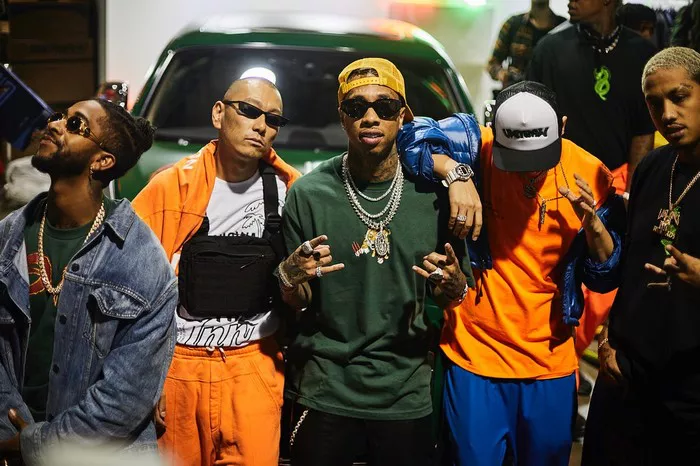Rap music is more than just a genre; it is a cultural movement. It originated in the 1970s in the South Bronx, New York City. Rap combines rhythm and poetry. It reflects the experiences and emotions of its creators. Understanding rap requires examining its history, themes, and impact on society. This article explores the symbolism of rap music in detail.
Historical Context of Rap
The Birth of a Movement
Rap music emerged from a blend of various influences. African American culture played a crucial role. The use of rhythm and oral storytelling dates back centuries. DJs began to mix music at block parties, creating a lively atmosphere. These parties laid the groundwork for what would become hip-hop.
Early Influences
Before rap, there was spoken word and rhythm-based storytelling. Artists like Gil Scott-Heron and The Last Poets influenced early rappers. They used their voices to discuss social issues. Their work set the stage for the rise of rap. In the late 1970s, artists like Grandmaster Flash and the Furious Five began to define the genre.
Evolution Over Time
Rap has evolved significantly since its inception. In the 1980s, groups like Run-D.M.C. and Public Enemy brought rap into mainstream culture. They tackled topics like racism and poverty. The 1990s saw the rise of gangsta rap, which presented a raw perspective on street life. Artists like Tupac Shakur and The Notorious B.I.G. became iconic figures.
Themes in Rap Music
Social Commentary
One of the most prominent symbols in rap is social commentary. Many artists use their lyrics to address issues like inequality, police brutality, and poverty. This theme resonates with listeners who share similar experiences. For example, N.W.A’s song “F*** tha Police” is a powerful critique of law enforcement.
Identity and Self-Expression
Rap also symbolizes identity. Many rappers express their cultural backgrounds and personal stories. They often highlight their struggles and triumphs. This aspect of rap allows artists to connect with their audience. For instance, Chance the Rapper frequently discusses his faith and community.
Resistance and Empowerment
Another important theme in rap is resistance. Many artists challenge societal norms and fight against oppression. They use their platform to empower marginalized communities. Kendrick Lamar’s album “To Pimp a Butterfly” is a prime example. It addresses themes of racism, identity, and resilience.
The Symbolism of Beats and Rhythms
The Role of Production
The beats in rap music are just as significant as the lyrics. Producers create unique soundscapes that enhance the message. Sampling is a common technique in rap production. It involves taking snippets from other songs to create something new. This process connects the past with the present.
Rhythm as a Narrative Tool
Rhythm in rap serves as a narrative tool. It influences how the message is received. Fast-paced verses convey urgency, while slower tempos allow for introspection. The choice of rhythm can heighten emotional impact. For example, J. Cole often combines smooth beats with thought-provoking lyrics.
Cultural Significance of Rap
A Voice for the Voiceless
Rap music symbolizes a voice for the voiceless. It gives expression to those who feel marginalized. Many artists come from backgrounds that are often overlooked. They share their stories through music. This act of storytelling fosters a sense of community and solidarity.
Global Influence
Rap music has transcended borders. Its influence can be seen worldwide. Different countries have adapted rap to reflect their cultures. For example, French rap addresses issues of immigration and social inequality. Similarly, South African rap often tackles themes of apartheid and economic struggle.
Commercialization and Mainstream Success
While rap began as a form of resistance, it has also become a commercial powerhouse. The mainstream success of artists like Jay-Z and Drake shows rap’s evolution. This commercialization has sparked debates about authenticity and the genre’s roots. Some argue that it has diluted the message, while others see it as a necessary evolution.
The Impact of Rap on Society
Changing Perceptions
Rap music has changed perceptions of hip-hop culture. It has been a force for both positive and negative stereotypes. While it has faced criticism for promoting violence and misogyny, it has also shed light on critical social issues. This duality complicates its legacy.
Educational Initiatives
Rap music is increasingly being used in educational settings. Programs use rap to teach literacy and critical thinking. This approach engages students who may not connect with traditional methods. Artists like Nas have collaborated with educational initiatives to inspire youth.
Advocacy and Activism
Many rappers use their influence for advocacy. They speak out on issues such as mental health, education, and social justice. For instance, artists like Common and J. Cole have been vocal about their beliefs. They encourage their fans to get involved and make a difference.
See Also: What Is Delivery in Rap Music?
Conclusion
In conclusion, rap music symbolizes a rich tapestry of cultural, social, and personal narratives. It serves as a platform for self-expression and social critique. The genre has evolved over time, reflecting changes in society and culture. Rap continues to be a powerful tool for advocacy and empowerment. Its influence stretches globally, transcending borders and connecting diverse communities. As it evolves, rap music will undoubtedly continue to inspire and resonate with listeners around the world.
Related Topics
What Does Rap Phenomenon Mean?

